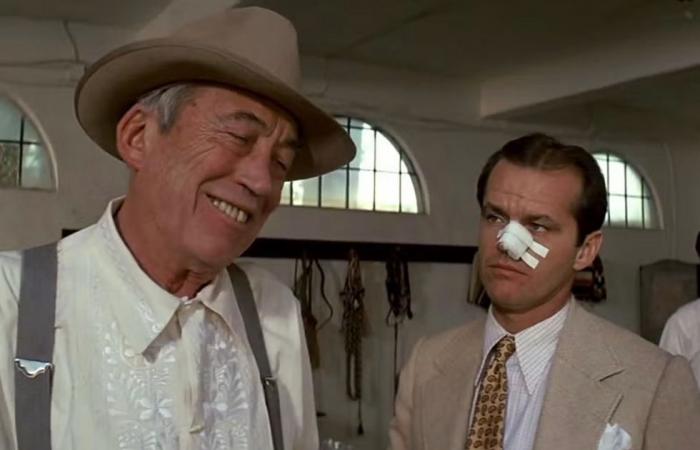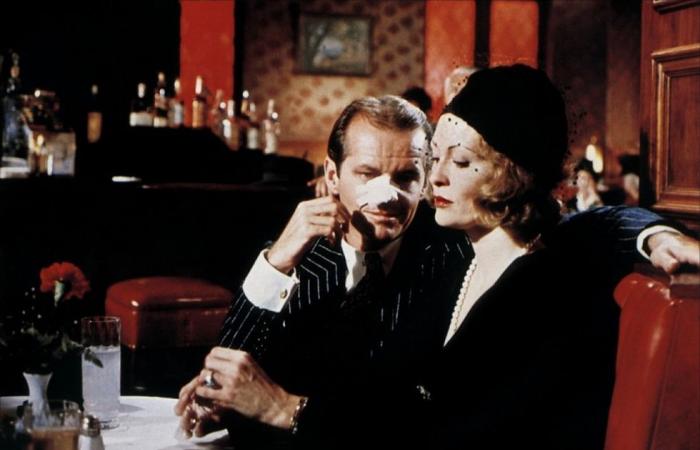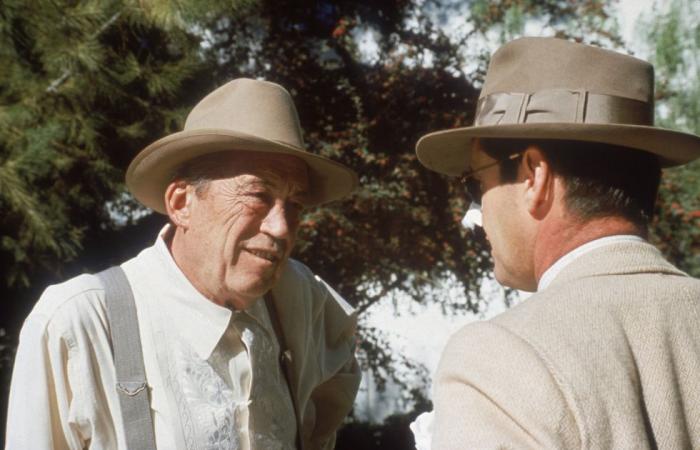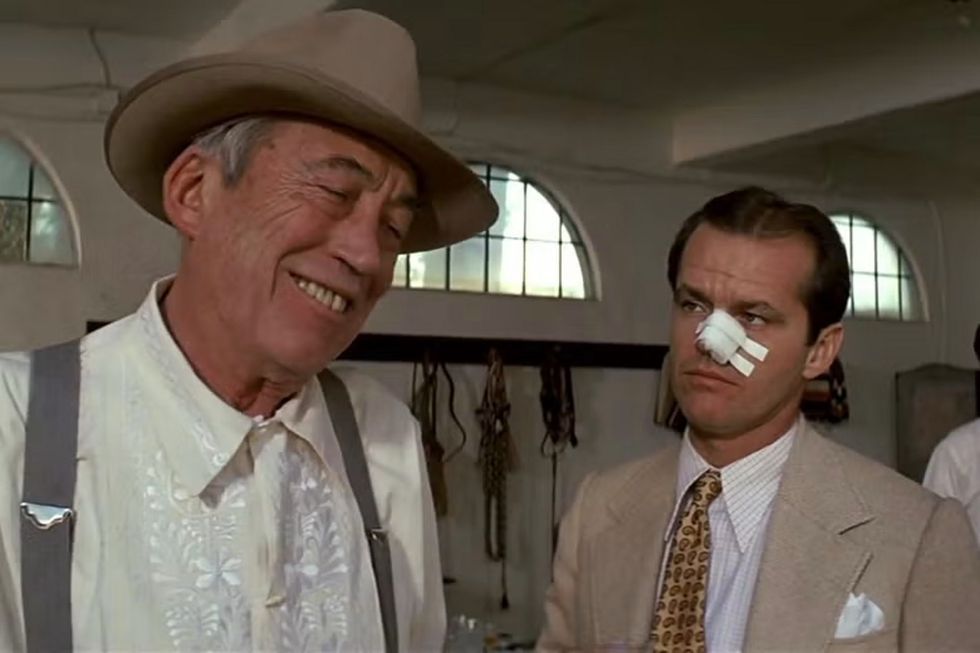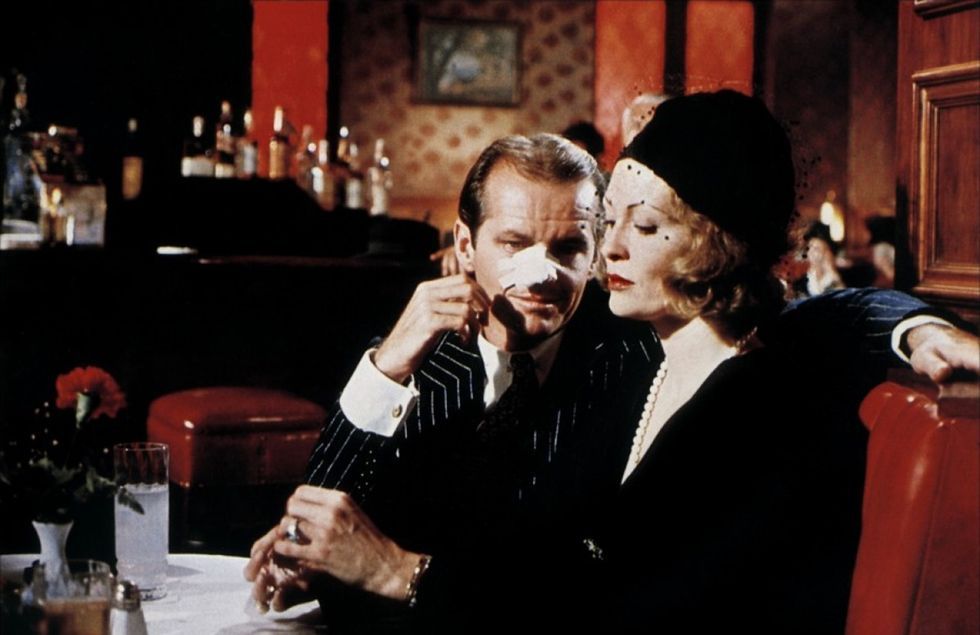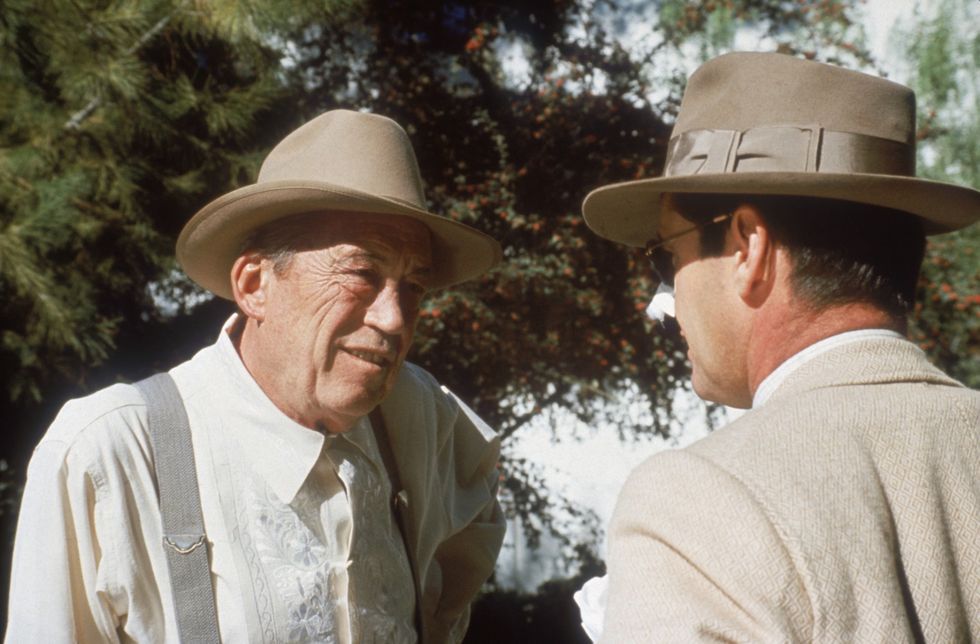“Forget it, Jake… it’s Chinatown.”. One of the most famous phrases in the history of cinema turns 50 today. Chinatown, Roman Polanski’s neo-noir masterpiece, remains an iconic moment in the history of the seventh art, in particular that which knows how to take a genre, pay homage to it and at the same time deconstruct it, deform it in order to talk to us about something bigger, and at the same time also about smaller. The Polish director that June 20, 1974, offered the world his last film in the States, before returning to the old continent. But as a farewell, it was certainly the most sensational one could conceive. Today again, Chinatown is referred to as his greatest filmeven higher than Rosemary’s Baby, The Knife in the Water, The Pianist or Repulsion. This is by virtue of Polanski’s unique ability to bring us into the hard boiled, luring us into a trap beautifully designed together with the screenwriter. Robert Towne, where historical reality, fiction and verisimilitude often give way to a symbolism, which distances us from classicism, leaves room for a story where the impotence of man, his lack of control over Life and what surrounds him is the truth dominant trait. All at the service of Jack Nicholson, who was actually the architect of the interest of Polanskitogether with the manufacturer Bob Evans.
The screenplay by Chinatown it was actually very different from the original that Towne had conceived, which was rewritten over and over again at Polanski’s will. The ending, bitter and marked by defeatis perhaps what still catches the eye the most and distances Polanski’s film from being a mere exercise in retrospective or a American noir tout court. The genre had had in Humphrey Bogart the Prince, in the 30s and 40s had donated unique masterpieces, but the Polish director knew that making a mere reproduction of that narrative period would have led to failure. Connecting to the drought that hit Los Angeles in the 1930s, complete with legal wars and large-scale speculation, Chinatown it introduced us to Detective Jake Gittes (Jack Nicholson), a determined, astute individual, tormented by his past but still gifted with a certain sense of humor and great acumen. He is hired by the mysterious and charming Evelyn Mulwray (Faye Dunaway) to investigate the alleged infidelity of her husband, Hollis Mulwary, who “coincidentally” is also the engineer in charge of water control in the City of Angels. What should have been a case like many others for Gilles will see him trapped in a shady situation conspiracy based on speculation, scamsmysteries, at the center of which is Evelyn’s father, the powerful and dark Noah Cross (John Houston).
If as a starting point Chinatown by Roman Polanski is in every way or so it seems, an extension of what Raymond Chandler and other great authors had created in the genre, the direction, the aesthetics, the semantics themselves, distance themselves from it. The film is a cinematic mutation, yet another from the Polish filmmaker, who has always used the thriller to go elsewhere. Directed almost entirely from a subjective point of view, it makes us follow a story Jack Nicholson plastered on his noseoften beaten but indomitable, as he tries to find his way among mysterious murders, alongside a glacial and desperate Dunaway but not a mere reproduction of the femme fatale tout court. Chinatown it does not speak to us of a mystery to be solved, but of an existential and universal impotence. Detective Gittes searches the truth about the disappearance of a man, then about her death, then about that woman and her family. In short, he seeks the truth about that torrid city, besieged by a drought which, as in the most classic American history, immediately becomes a capitalist, speculative opportunity. Chinatown it destroys all the pillars of American society one by one. The family is an incestuous and violent jumble, the homeland simply does not exist, it is swept away at the very moment in which there is money to be earned at that God, who is the Money God. Polanski’s God is ready to submerge everyone, he manifests himself in water, an element that has always been common in his cinematography, but never as in Chinatown so important, so present. Messenger of death and instability, it is worth like oil, it flows through that land that seems shocked by the torments of the ancient biblical testament.
In Chinatown at a certain moment the tension becomes unbearable, the atmosphere portends death and desperation, failure and tragedy. In terms of writing, the film has few equals even today in the history of cinema, each dialogue is a door to different interpretations, the style elevates everything, compensates for a possible disorientation of the public in the face of these continuous twists, mysteries, to this detective simply trying to do the right thing. In the ending, tragic and painful, he finds himself shipwrecked on a desert island with that final sentence, that “Forget it, Jake… it’s Chinatown.” That it is a sentence that forces humanity not to be able to reach the sun, not to find a solution with which to revolutionize or change their lives, because life, in the end, always wins. There would have been and still has been a lot of discussion about how much Chinatown is linked to the great authors of the genre. The epic of Philip Marlowe And Sam SpadeIn short, Raymond Chandler’s creatures are starting points from which Polanski distances himself. The link with the production of is clear Ross MacDonald but, in all likelihood, if you look at the narrative structure, the psychology of the characters and the semantics, at the game of Chinese boxes, James Ellroy is perhaps the closest. We have a Chinese box game in which the truth escapes us and then reappears before us, in a journey halfway between dream and reality, lucidity and madness of incredible viscerality.
The soundtrack of Jerry Goldsmith helped the film to break away from the classic form, the photography did the same, with a sensational work of John A. Alonzo. Jack Nicholson, author of one of his greatest performances here, far from the histrionics that made him so famous, still today remains one of the most incredible, most plausible and meaningful protagonists of the genre that have ever been seen. Included in the United States Library of Congress as a work to be preserved, included in every list of the best American films of all time, Chinatown it remains a masterpiece of writing, conception, direction and form, yet another proof with which Polanski, very courageous, audacious and in some ways even cruel if we want, was able to understand the need to move away from the happy ending. He used the means of Hollywood to distance himself from that predictable concept of opera, the same one that he would have repudiated and with it his ungrateful producers, his haughty actors, his desire to always smooth the audience the right way. The paradox is that by refusing to do so, Polanski demonstrated that he deeply understood the noir genre, the true essence of him. For this reason, also for this reason, Chinatown half a century later it remains the greatest neonoir of all time.
The unmissable items for the man of style

I was born in Padua in 1985, always a great fan of sport, cinema and art. After twelve years as a professional coach and scout in the world of volleyball, I decided to pursue a career as a journalist.
Since 2016 I began to collaborate with various paper and online magazines, as a critic and correspondent at festivals such as Venice, Rome and Trieste Science Fiction.
I published with Viola Editrice “Cinema in the time of terror”, analysis of post-9/11 cinema. For Esquire I cover cinema, television and sport, in particular I am a great fan of football, boxing, volleyball and tennis.
By virtue of this passion I also maintain a personal in-depth page on Facebook, entitled L’Attimo Vincente.
I believe in the weight of words, in irony, in always being true to one’s opinion when writing and in never thinking of being infallible.

